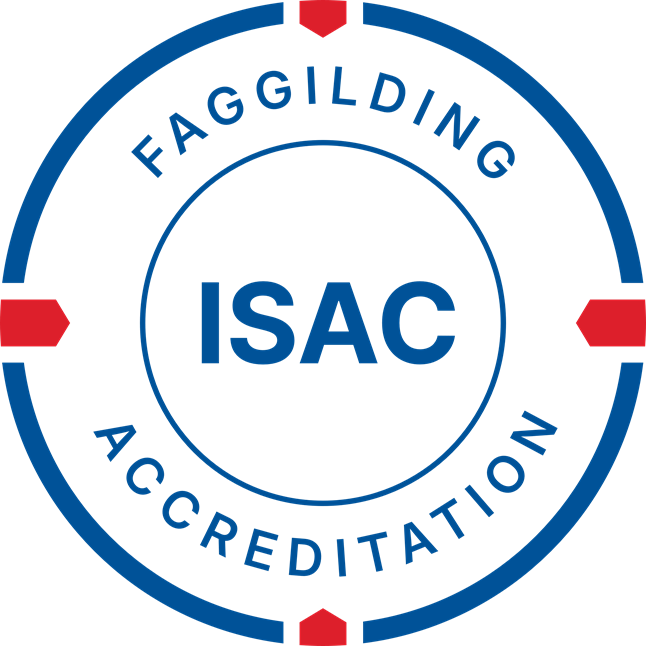About ISAC
ISAC – The Icelandic Service for Accreditation is the national accreditation body in Iceland and provides all types of accreditations, both where there is a legal requirement for accreditation and in areas where it is up to an organisation to have its activities accredited.
Accreditation has been operated in Iceland since 1992, originally at the Icelandic Legal Metrology Office but was transferred to the Consumer Agency for a period of time. Since 2006 accreditation has been operated as a professionally and financially independent division within the Intellectual Property Office. ISAC's activities are under the responsibility of the Ministry of Industries. ISAC receives a contribution from the state budget but also collects revenue from service fees.
The legal basis of accreditation is the Accreditation Act no. 24/2006 and Regulation no. 566/2013 on Market Surveillance, Accreditation etc., which implements Regulation (EC) 765/2008 on accreditation and market surveillance, which lays down the main framework for accreditation in Europe. The accreditation activities are based on the ISO/IEC 17000 international standards series. ISAC itself operates in accordance with the requirements of the standard ÍST EN ISO/17011:2017 Conformity assessment - Requirements for accreditation bodies that accredit conformity assessment bodies.
Role
Accreditation is the formal recognition by a competent authority that an organisation is competent to perform certain conformity assessment tasks, such as testing the properties of substances, inspecting the condition of equipment and plants or certifying management systems. Conformity assessment is the assessment of whether a product, process, system or person meets requirements, such as inspection, testing, certification, calibration, etc.
ISAC provides accreditation for inspection laboratories, testing laboratories, calibration laboratories and certification laboratories. ISAC decides on the maintenance of accreditation, the extension or limitation of the scope of accreditation, and the suspension or withdrawal of accreditation in accordance with relevant standards, laws and regulations. ISAC also has the task of evaluating notified bodies and dealing with issues pertaining to OECD rules on Good Laboratory Practice (GLP).
International cooperation
ISAC is a member of the European co-operation for Accreditation (EA). The role of EA is primarily to ensure the harmonised activities of national accreditation bodies in the Member States of the EEA, but also to be a forum for cooperation and communication between all national accreditation bodies in Europe, within and outside the EEA.
EA's Multilateral Agreement on Mutual Recognition (MLA) facilitates trade in goods and services in Europe and worldwide. Mutual recognition of accredited certificates, inspections, calibration certificates and test reports facilitates access to the European market and also international markets through EA's cooperation with the International Laboratory Accreditation Co-operation (ILAC) and the International Accreditation Forum (IAF).
The EA members that have signed the MLA agreement have to undergo a rigorous multinational peer evaluation. The objective of this systematic evaluation, which is carried out on-site, is to verify that the national accreditation bodies that have signed the agreement continue to meet the internationally agreed criteria. This peer evaluation ensures uniform and harmonised accreditation criteria and also facilitates the exchange of information and experience between the parties that have signed the agreement.
ISAC underwent EA’s peer evaluation in April 2022 and became a party to the MLA agreement regarding the accreditation of inspection bodies in October 2022.
Cooperation agreement
A framework cooperation agreement is in place between ISAC and the Swedish national accreditation body SWEDAC, which states that SWEDAC, on behalf of ISAC, will provide accreditation of those conformity assessment activities where ISAC has not yet obtained the mutual recognition of EA, such as testing, calibration and certification bodies.
